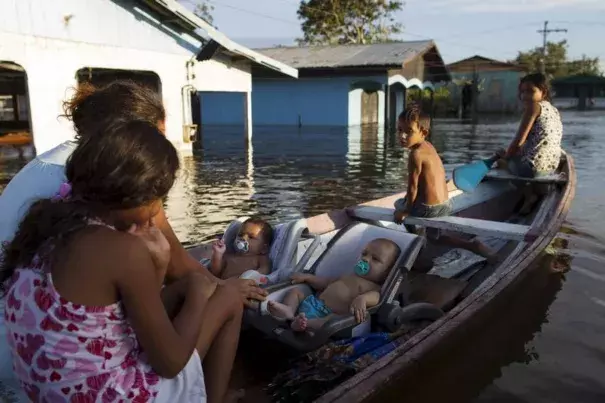'Catastrophic' floods rising on Amazon River, say scientists

Severe flooding on the Amazon has increased amid changing weather patterns, and is harming the health and incomes of people living along the world's biggest river, scientists said.
Analysing more than 100 years of records measuring Amazon River levels in the port of Manaus in Brazil, they found extreme floods that occurred roughly once every 20 years in the first part of last century are now happening about every four years.
"There are catastrophic effects on the lives of the people as the drinking water gets flooded, and the houses get completely destroyed," said Jonathan Barichivich, environmental scientist at the Universidad Austral de Chile.
"Our findings unravel the ultimate causes of the recent intensification - wet season getting wetter, and dry season getting drier - of the water cycle of the largest hydrological basin of the planet," he told the Thomson Reuters Foundation.
Droughts have also become more frequent in the past two to three decades, but the rise in flooding stood out, he noted.
In a paper published on Wednesday in the journal Science Advances, researchers from institutions including Britain's University of Leeds said severe flooding had affected the Amazon basin nearly every year from 2009 to 2015.
They linked the increase in flooding to a combination of warmer temperatures over the Atlantic Ocean and cooler temperatures over the Pacific.
Known as the Walker circulation, this effect influences tropical weather patterns, and can partly be attributed to shifts in wind belts caused by global warming, the study said.


